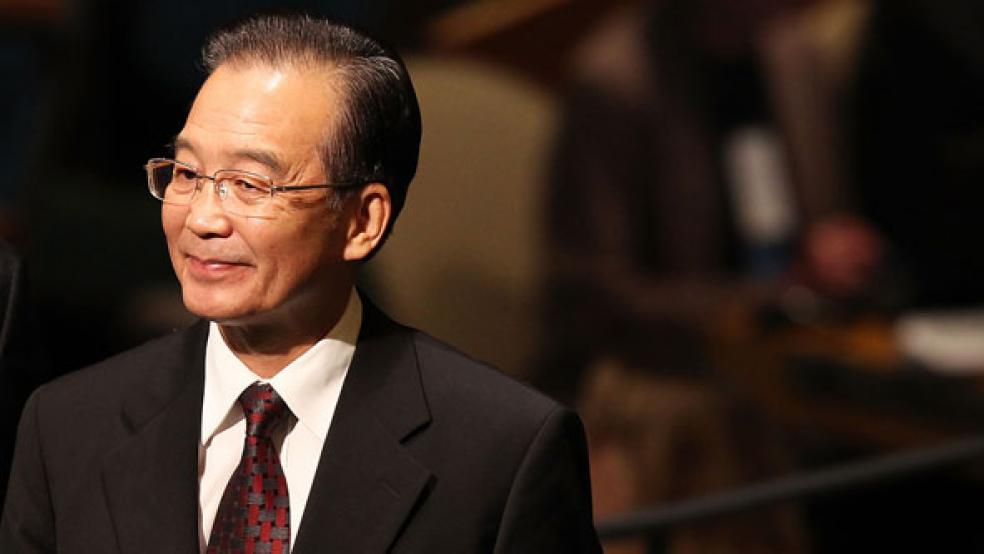Markets rallied on Monday when it emerged that China would buy Italian bonds. But was it really part of China's quest for 'market status'?
When Chinese Premiere Wen Jiabao spoke at the the World Economic Forum in Dalian today, he took the opportunity to pressure the EU to recognize China as a full-market economy.
Market economies refer to economies where prices are determined by the supply and demand forces in the market. Non-market economies are those where the central government determines prices. China has sought market status ever since it began to reform its economy in 1984.![]()
All World Trade Organization member countries are required to recognize China as a market economy by 2016. The status would protect China against trade disputes and anti-dumping measures. Speaking in Dalian, Wen said (via AFP):
"European Union leaders and the leaders of its (Europe's) main countries must also courageously look at China's relationship from a strategic viewpoint. ...Based on the WTO (World Trade Organisation) rules, China's full market economy status will be recognized by 2016. If EU nations can demonstrate their sincerity several years earlier, it would reflect our friendship."
China has already received free market status from countries like Singapore and Israel but has frequently been the target of anti-dumping lawsuits by the U.S. and the EU. Despite being one of the EU's biggest trading partners, the country is unlikely to be granted market status before 2016.
"China not a lender of last resort"
Meanwhile, Wen placed the burden of solving the European debt crisis firmly on the shoulders of the EU and individual European countries. He said developed countries need to fix their fiscal and monetary policy and cut deficits instead of depending on China to bail out the world economy (via Bloomberg):
“Countries must first put their own houses in order. …Developed countries must take responsible fiscal and monetary policies. What is most important now is to prevent the further spread of the sovereign debt crisis in Europe.”
Meanwhile, former adviser to the People's Bank of China Yu Yongding has come out and said China shouldn't buy bonds issued by European countries unless they clearly delineate how they intend to solve their debt problems. He told Bloomberg that China is not a lender of last resort to troubled countries. Instead Yu said, China could consider buying bonds issued by the European Financial Stability Facility or Eurobonds if they become available.
Beijing holds about 4% of Italy's €1,900 billion of debt according to Financial TImes, and its purchase of European debt has been relatively small. China and other BRICS nations are going to discuss aid to the Eurozone at a summit in Washington.
China isn't quite backtracking. Wen said the Asian giant will continue to expand investment in the Eurozone but he insisted the best way China could contribute to global economic stability was by focusing on sustainable domestic growth.

